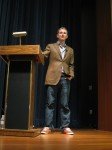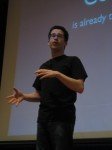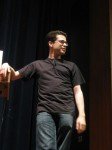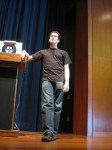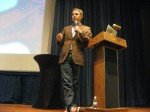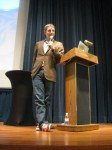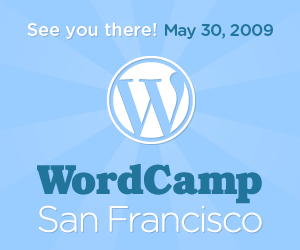If you don’t have time to watch the video, here is what I learned:
- If we are interested in maximizing the welfare of our citizens the way to do that is to maximize individual freedom. The reason for this is that freedom is in itself good, valuable, worth while, and essential to being human. If people have freedom they can act on their own to do the things that will maximize their welfare and nobody has to decide on their behalf.
- The way to maximize freedom is to maximize choice.
- The more choice people have the more freedom they have, and the more freedom they have, the more welfare they have.
- People today have tons of choices
- Our society is shifting responsibilities from people of expertise to you, the individual
- Something as dramatic as our identity is now become a matter of choice. We get to invent an identify and reinvent ourselves as much as we like.
- People are preoccupied with choices today
- Able to work every minute at any location. Have to make a decision to work or not to work. At a soccer game we have a cell phone on one hip, laptop on the other and every minute we are at the game we ask ourselves should I do this, this, or this.
- Choices used to be etched in stone, now we have a 10 commandments do it yourself kit
- All this choice has two negative effects
- If creates paralysis rather than liberalization. Even if we manage to make a choice, we end up less satisfied than if we had several options to choose from. It makes it easy to imagine you could have made a better choice. The more options there are, the easiesr it is to regret the decision.
- How much we value things comprises of how much we compare them to.
- Whenever you are choosing to do one thing, you are choosing to not do another
- There used to be a time when there were one type of jeans and now there are slim fit, button fly, stone washed, boot cut etc. He said “I want the kind that used to be the only kind”. All of the choices in jeans made it better but he felt worse because with all of the options his expectations for how good a pair of jeans could be went up. When there was only one type of jean he had low expectations.
- Adding options to people’s lives can’t help but increase people’s expectations and provide less satisfaction even when they are good results.
- Everything was better back when everything was worse. There used to be things that were a pleasant surprise.
- The secret to happiness is low expectations
- However there are some people in our world that have too little choice (found it interesting he threw that part in at the end to make you think).
- If creates paralysis rather than liberalization. Even if we manage to make a choice, we end up less satisfied than if we had several options to choose from. It makes it easy to imagine you could have made a better choice. The more options there are, the easiesr it is to regret the decision.

